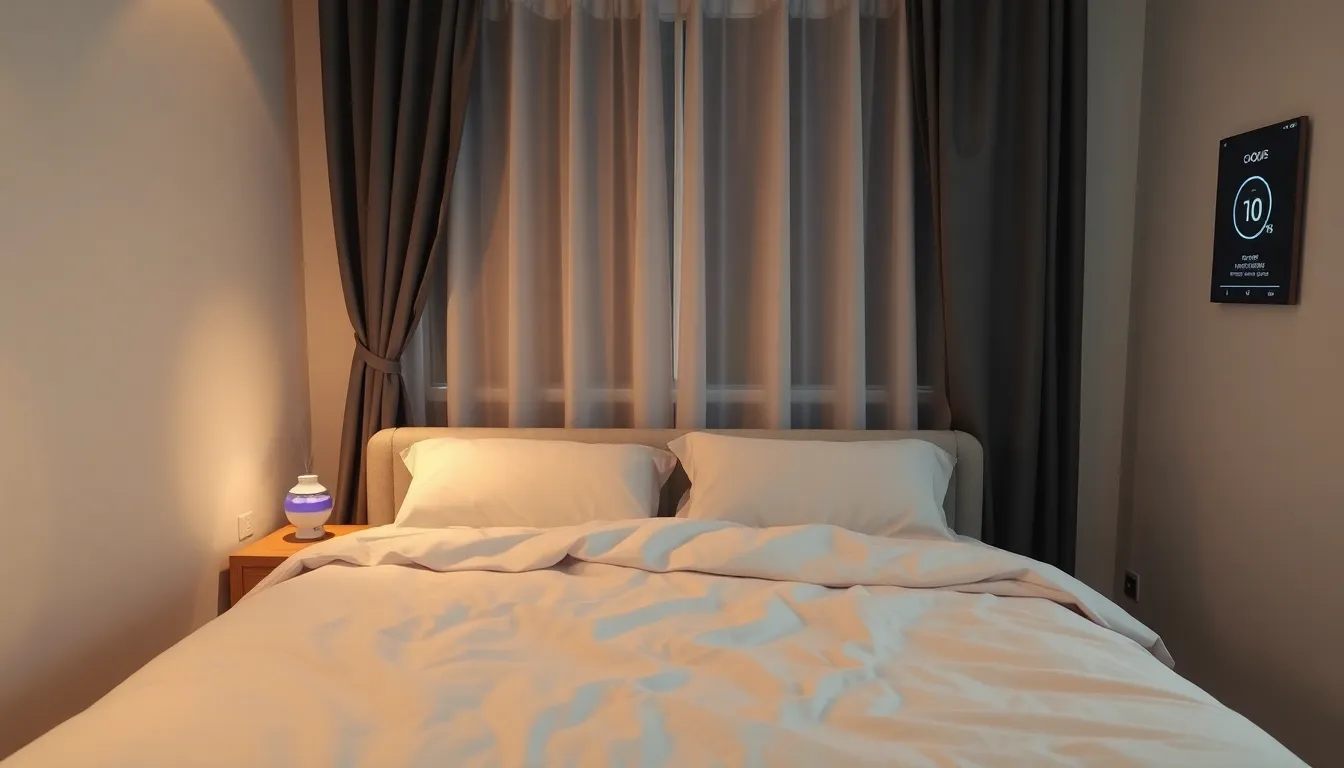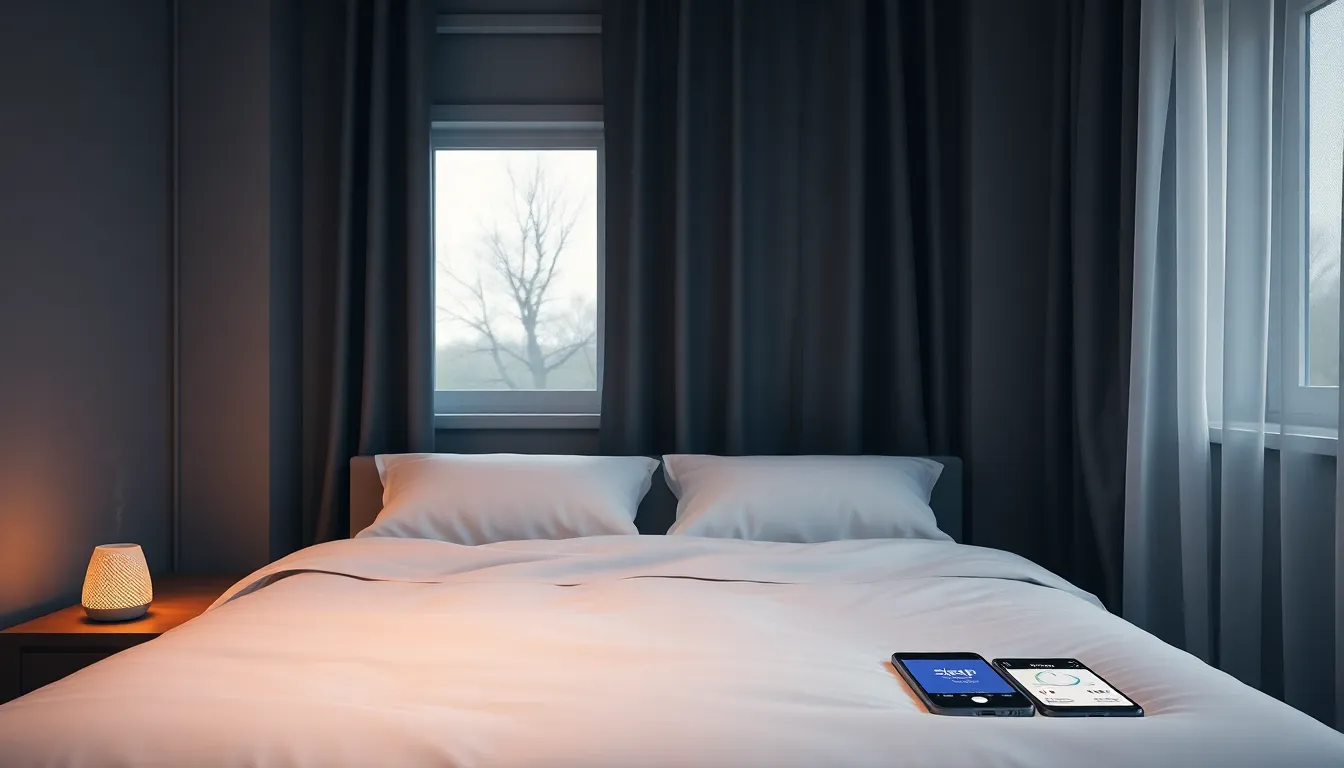Table of Contents
ToggleIn a world where sleep often takes a backseat to Netflix binges and late-night snacks, optimizing those precious Z’s can feel like an uphill battle. Yet, mastering the art of sleep isn’t just about counting sheep; it’s about transforming your nightly routine into a restful haven. Imagine waking up refreshed, ready to conquer the day like a caffeinated superhero—sounds dreamy, right?
Understanding Sleep Optimization
Sleep optimization involves enhancing sleep quality for better overall health and productivity. Strategies target improving sleep duration and environment.
Importance of Sleep Quality
Sleep quality significantly impacts physical and mental health. High-quality sleep supports immune function, enhances cognitive abilities, and boosts emotional well-being. Poor sleep leads to fatigue, decreased focus, and increased stress levels. Statistics show that adults who prioritize sleep quality often experience improved productivity and lower risks of chronic diseases. Prioritizing sleep not only improves energy levels but also enhances mood consistency throughout the day.
Factors Influencing Sleep
Multiple factors influence sleep quality and effectiveness. Environmental conditions play a crucial role, including light, noise, and temperature. A dark, quiet, and cool bedroom fosters better sleep. Lifestyle choices such as caffeine consumption, exercise routines, and electronic device usage before bedtime can disrupt sleep patterns. Mental health also contributes significantly; stress and anxiety are known to impede sleep. Lastly, sleep disorders such as insomnia or sleep apnea require addressing for optimal sleep health. Understanding these factors lays the groundwork for effective sleep optimization strategies.
Techniques for Sleep Optimization

Effective techniques can significantly enhance sleep quality. Implementing a consistent sleep schedule remains a cornerstone of sleep optimization.
Sleep Schedule and Consistency
Following a regular sleep schedule promotes better rest. Going to bed and waking up at the same time daily helps regulate the body’s internal clock. This consistency can reduce the time it takes to fall asleep and increase overall sleep duration. Aim for seven to nine hours of quality sleep each night. Prioritizing a winding-down routine before bed encourages relaxation and signals the body that it’s time for sleep. Limiting daytime naps to 20–30 minutes also boosts nighttime sleep quality.
Sleep Environment Setup
Creating an ideal sleep environment fosters restorative rest. Maintaining a cool room temperature between 60°F and 67°F optimizes comfort for sleep. Blocking out light with blackout curtains or eye masks prevents disruptions during the night. Eliminating noise enhances the ability to fall asleep and stay asleep. Using calming scents like lavender or chamomile can promote relaxation. Investing in a supportive mattress and comfortable bedding contributes to overall sleep quality.
Lifestyle Changes for Better Sleep
Optimizing lifestyle choices significantly enhances sleep quality. Simple adjustments can lead to more restful nights.
Nutrition and Sleep
Balanced nutrition plays a crucial role in sleep quality. Foods rich in magnesium, such as leafy greens and nuts, promote relaxation and can improve sleep onset. Including complex carbohydrates in meals encourages serotonin production, further enhancing mood and sleep. Caffeine and heavy meals should be avoided close to bedtime to prevent sleep disruption. Alcohol often leads to fragmented sleep, so limiting intake is essential. Hydration matters too; excessive liquids before bed can cause multiple trips to the bathroom, interrupting rest.
Exercise and Sleep Quality
Regular physical activity directly impacts sleep quality. Engaging in moderate exercise, like walking or cycling, helps regulate sleep patterns. Benefits arise from workouts scheduled earlier in the day, which can enhance deep sleep stages. Strenuous exercise right before bed may energize the body and hinder sleep. Consistency in exercising several times a week can lead to lasting improvements in sleep duration and quality. Additionally, outdoor activity exposes individuals to natural light, helping to maintain a healthy circadian rhythm.
Sleep Aids and Technologies
Various aids and technologies support sleep optimization, enhancing sleep quality and overall wellness.
Natural Sleep Aids
Natural sleep aids promote relaxation and improve sleep. Herbal supplements, such as melatonin, valerian root, and chamomile, help individuals fall asleep faster. Many people find magnesium-rich foods like spinach and nuts beneficial for calming nerves. Additionally, aromatherapy with lavender essential oil creates a soothing atmosphere. Practicing mindfulness or meditation can also serve as a natural sleep aid, calming the mind before bedtime. Incorporating these natural remedies into a nighttime routine can lead to more restful sleep and improved health.
Sleep Tracking Devices
Sleep tracking devices provide valuable insights into sleep patterns. Wearable technology, such as smartwatches and fitness trackers, monitors sleep duration and quality. Users gain access to data about sleep stages, helping identify areas for improvement. Smartphone apps also allow tracking of sleep habits, providing reminders for consistent sleep schedules. Some advanced devices feature smart alarms that wake individuals during lighter sleep stages, enhancing the waking experience. The integration of these technologies empowers users to take control of their sleep health and make informed adjustments.
Optimizing sleep is essential for overall health and well-being. By addressing environmental factors and making lifestyle changes individuals can significantly enhance their sleep quality. Establishing a consistent sleep routine and creating a calming atmosphere are key steps toward achieving restorative rest.
Incorporating nutritious foods and regular physical activity further supports healthy sleep patterns. Utilizing natural sleep aids and technology can provide additional assistance in tracking and improving sleep habits.
Prioritizing sleep not only boosts energy levels but also enhances cognitive function and emotional resilience. With the right strategies in place anyone can transform their sleep and reap the benefits of a more vibrant life.







